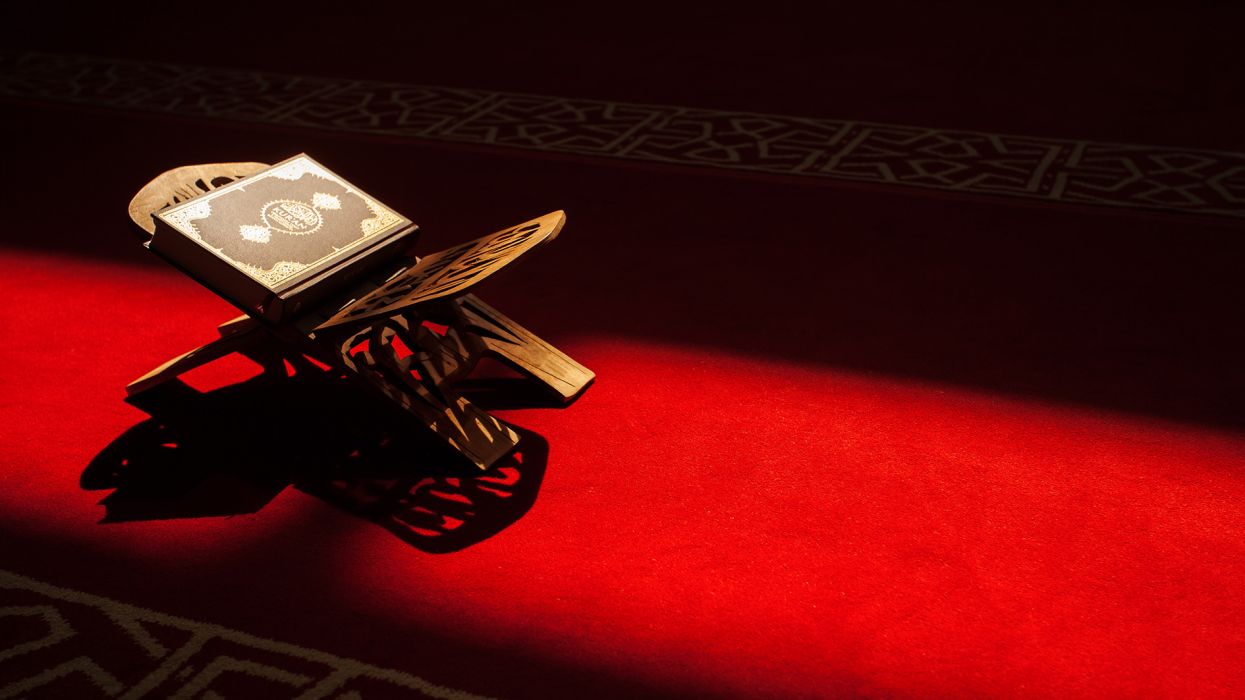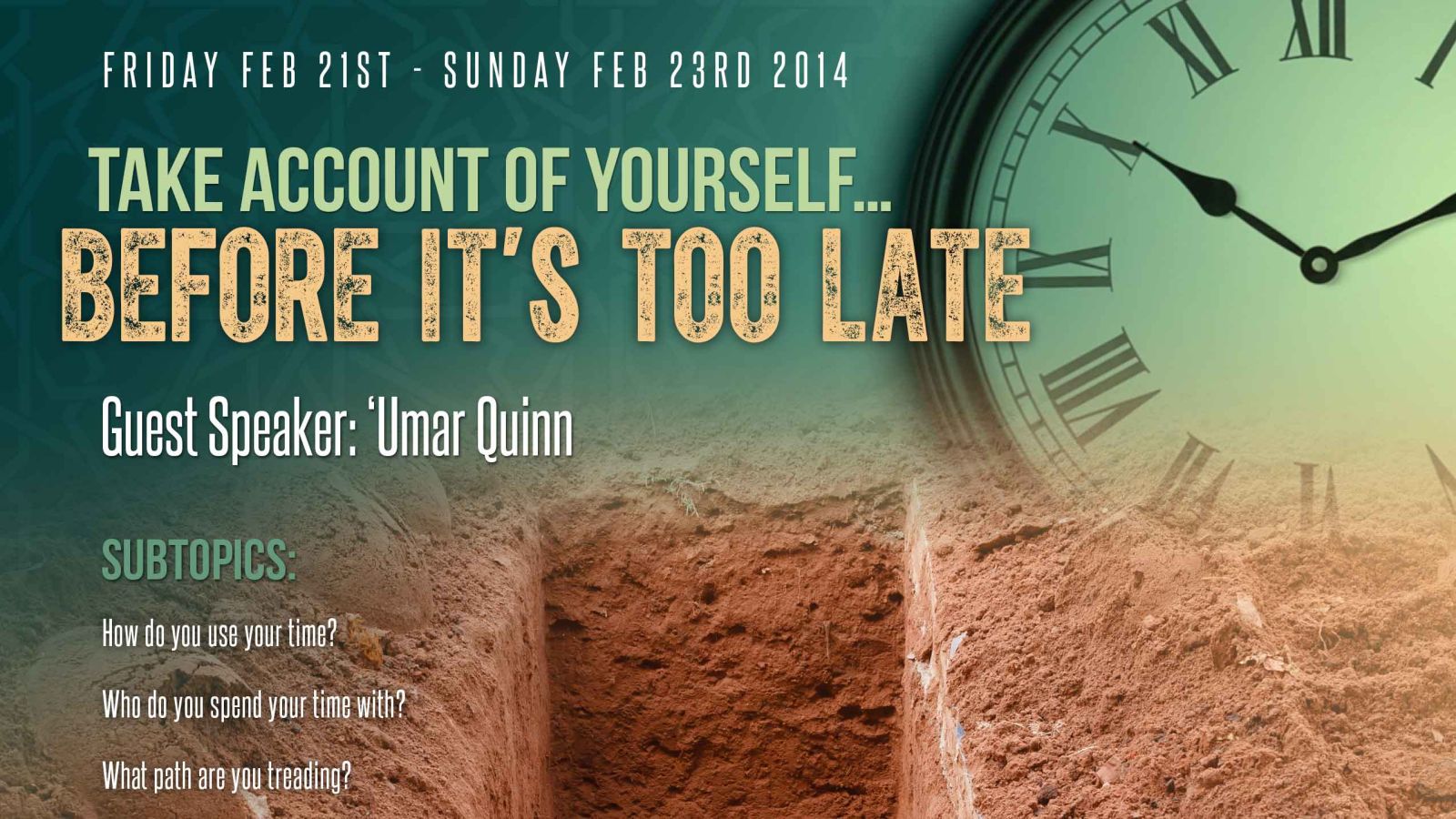Who is al-ʿAllāmah Muḥammad Ibn ʿAbd al-Wahhab al-Banná́?
The Noble Scholar is originally from Egypt, though he resides and has resided in the Kingdom of Saudi al-ʿArabīa for many years. The Shaykh learnt mainly under Imām ʿAbd al-Razzāq ʿAfīfī al-Salafī (raḥimahullāh). He was appointed by Imām Ibn Bāz as one of the first lecturers in the institute of knowledge in Rīyaḍ. The Shaykh has many students, including the likes of al-ʿAllāmah Rabīʿ Ibn Hādī al-Madkhalī and al-ʿAllāmah Muḥammad Amān al-Jāmī (raḥimahullāh). He also taught the likes of ʿAbd al-Raḥmān ʿAbd al-Khāliq and ʿUmar al-Ashqar, then the Shaykh warned against them when they deviated from the Salafī methodology. The Shaykh currently resides in Jeddah where he teaches from books like Uṣūl al-Thalāthah, Kitāb al-Tawḥīd, Ṣaḥīḥ Muslim, Tafsīr Ibn Kathīr and much more.
From the Lecture
So if this is the promise of Allāh, then a this does not go outside of two matters; and that is either the Muslims are truthful in the fact that they are believers, and therefore that Allāh (tabāraka wa taʿāla) has lied, he has broken His Promise, and High above and removed is He from that; or that the Muslims are in fact in a claim to Islām like the Jews and the Christians and their claim to belief; the Jews claim that they are believers of what Mūsa was upon, and the Christians claim to believe and are upon what ‘Īsa (ʿalayhi salām) was upon. So the Muslims nowadays claim that they believe in Islām but are not practising upon anything that Muḥammad (ṣallallāhu ʿalayhi wa-sallam) was upon; so, therefore, it is not a fact that Allāh (tabāraka wa taʿāla) broke His Promise, but the fact that the Muslims claim to believe; that their practice of Islām is not correct, or is not authentic.
Shaykh Muḥammad states, and this is affirmed by the statement of the Prophet (ṣallallāhu ʿalayhi wa-sallam) when he described the position of this Ummah with regard to other nations, and it is the ḥadīth in which he says,
‘There will come a time when the nations will invite one another to you like diners invite one another to a plate’ and one of the companions asked ‘Is this because we are a small amount, O Messenger of Allāh?’ And the Messenger of Allāh said, ‘No, it is not that you are a small amount, you will be many, but you will be like the foam upon on the ocean, and Allāh (tabāraka wa taʿāla) will place wahn in your hearts’, and it was stated, ‘O Messenger of Allāh, what is this wahn?’ He said, ‘Wahn is love of dunyā and hatred of death.’
Also, the Shaykh said, Allāh has related to us the remedy, this illness, how to change this condition, and that is based upon the ḥadīth in which it is stated,
‘When you get involved in interest or usury-based transactions, and you will become pleased with agriculture and you will follow the tails of the cows, and you leave Jihād, Allāh (tabārak wa taʿāla) will send upon you humiliation and he will not remove it from you until you return back to your dīn.’
So the situation, or the circumstance that we find ourselves in now, of being low and humiliated, and having no position whatsoever, is a situation because we are not upon our dīn and we have to return back to the correct dīn, we must return back to the real dīn, applying it and believing in it and the like; we have differed like the Jews have differed and the Christians have differed, like the Prophet (ṣallallāhu ʿalayhi wa-sallam) said,
‘The Jews have split into seventy-one groups and the Christians seventy-two, and my Ummah will split into seventy-three sects, all of them in the hellfire except one’, and he was questioned as to which one that was, and he said, ‘The Jamā’ah), the group, in one narration he said, ‘The one which is upon that which I am upon today, and my Companions.’
We must know exactly what the Prophet (ṣallallāhu ʿalayhi wa-sallam) and the Companions were upon, and it is something that is upon us to ask for in every prayer, and that is praising Allāh (subhānahu wa taʿalá), making a covenant that we will only worship Allāh that we want Him to,
“Guide us to the path of those who have been favoured”
[Sūrah al-Fātiḥah: 6]
And that is, of course, the path of the Prophet (ʿalayhis salām) and the Companions. So we ask for guidance to the path of those whom Allāh has favoured and the verse that precedes it is to ‘Guide us to the Straight Path,’ Ṣirāt al-mustaqeem, the path of those who He has favoured and His blessings are upon. Ṣirāt al-mustaqeem, it has been said that it is the Qurʾān, the Straight Path, and it is based on the verse when Allāh (tabāraka wa taʿāla) mentions when the Jinns, heard the Messenger of Allāh recite the Qurʾān, and they went back to their people warning that,
“We have heard a Book that guides to the Straight Path.”
[Sūrah al-Jinn: 2]
So guidance to the straight path is taken from the Qurʾān, by listening to the Qur’an and by knowing the Qurʾān; this is the guide to the straight path. Also, Allāh (subhānahu wa taʿāla) points out that the Prophet (ṣallallāhu ʿalayhi wa-sallam), ‘Guides to the Straight Path’ based on the verse of the Qurʾān in which he said,
“Verily you (O Muḥammad) did not know what was the Book
nor what was ēmān, but then we guided you our light…
and verily you guide to a straight path,”
[Sūrah al-Shūrā: 52]
So this shows that that which guides the straight path is the Book of Allāh (tabāraka wa taʿāla) and the Sunnah of the Messenger of Allāh (ṣallallāhu ʿalayhi wa-sallam). Also, what is a must along with the book of Allāh and the Sunnah of the Messenger of Allāh (ṣallallāhu ʿalayhi wa-sallam) is to follow the path of those whom Allāh has blessed or favoured, and who are those whom Allāh has blessed and favoured? They are the Companions of the Prophet (ṣallallāhu ʿalayhi wa-sallam), the Anṣār and the Muhājirūn.
So our dīn is contained and confined to Qurʾān and the Sunnah and the way of the Ṣahābah and whoever deviates from this then he will not be from those who will be saved from the hellfire and this is based on the verse in the Qurʾān in which Allāh says,
“Whoever opposes the Messenger after the Truth
has been made clear, and follows a path other than
the path of the believers, we will leave him with
that which he has chosen and his final destination is hell,”
[Sūrah al-Nisāʾ: 115]
To the end of the verse.
Our dīn is preserved, Allāh (tabāraka wa taʿāla) has preserved the Qurʾān and He has preserved the Sunnah by selecting Scholars who are decisive in what is correct and what is incorrect or remove from that which is unauthentic of it, and has preserved the way of the understanding of the Companions and he has ordered us to return any difference that we may have, to return it back to Allāh and His Messenger. The dīn is contained in these sources and preserved and so no one can do any action unless he has a ḥujjah, evidence from the Book of Allāh and upon the Sunnah of the Messenger (ṣallallāhu ʿalayhi wa-sallam), or from the statements of the Sahābah; so this is what our dīn is contained and preserved in.
The Shaykh said if we want he will stop speaking at this point because he can go into very great detail but in his estimation this is enough, and if we have questions then he can start taking questions and answer them inshā’Allāh.’
The lecture was then concluded with a highly beneficial Q&A session on the issue of whether Ṣaddām Hussain should be considered a disbeliever or not, and the positions of the Shaykh as well as other Mashāyikh of that period such as Shaykh ibn Bāz (rahimahullāh) concerning this issue. A question was also put to the Shaykh regarding his position on the individual Mustafa al Adawi, to which the Shaykh responded:
‘He doesn’t know much of Mustafa al-Adawi, and he said regarding the men who live in this time he will refer this to Shaykh Rabī’ someone who knows the men of this time and someone who will rule upon a person based upon what they have stated and what they have written and what has been recorded regarding them and he will look at that and he will give a proper ruling, he said that he believes that he will give a proper ruling regarding that person, so this should be referred back to Shaykh Rabī’ and he said he asks Allāh to protect him and to bless him.’
The Prophet (ṣallallāhu ʿalayhi wa-sallam) said,











